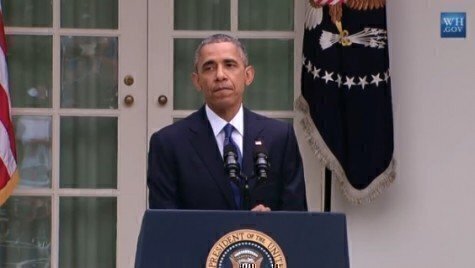A big question looming over Barack Obama’s remaining term is how will he use his pardon power? Often, in their final months in office, outgoing Presidents have made some high-profile pardon decisions.
 In January 2001, President Bill Clinton pardoned his own brother, Roger (who had served a one-year jail sentence on a drug conviction), businessman Marc Rich, Whitewater participant Susan McDougal and former Housing Secretary Henry Cisneros. In late 1992, President George H. W. Bush pardoned six men implicated in the Iran-contra affair, including former Defense Secretary Caspar Weinberger. And in January 1989, President Ronald Reagan pardoned New York Yankees owner George Steinbrenner for charges related to illegal campaign contributions made to Richard Nixon’s presidential campaign.
In January 2001, President Bill Clinton pardoned his own brother, Roger (who had served a one-year jail sentence on a drug conviction), businessman Marc Rich, Whitewater participant Susan McDougal and former Housing Secretary Henry Cisneros. In late 1992, President George H. W. Bush pardoned six men implicated in the Iran-contra affair, including former Defense Secretary Caspar Weinberger. And in January 1989, President Ronald Reagan pardoned New York Yankees owner George Steinbrenner for charges related to illegal campaign contributions made to Richard Nixon’s presidential campaign.
Other people to receive presidential pardons or commuted sentences from Presidents include Richard Nixon (by Gerald Ford), Jefferson Davis and Gordon Liddy (by Jimmy Carter), Jimmy Hoffa (by Richard Nixon), Roy Olmstead (by Franklin Roosevelt), Eugene Debs (by Warren Harding), Dr. Samuel Mudd (by Andrew Johnson), and Brigham Young (by James Buchanan).
So far, President Obama has granted few full pardons. As of Tuesday, the President had granted just 70 full pardons since 2009, the slowest pace since the days of George Washington and James Madison. But President Obama also has granted more than 900 commuted sentences.
In all, there are about 2,000 full pardon requests on Obama’s desk and more than 12,000 requests for commuted sentences, according to figures from the Justice Department.
One person who apparently would like clemency from President Obama is former government contractor Edward Snowden. In September, Snowden argued in an interview that he deserved a pardon for the “public benefit” he provided by leaking thousands of government documents. Snowden lives in exile in Russia but faces espionage charges back in the United States.
https://www.theguardian.com/us-news/2016/sep/13/edward-snowden-why-barack-obama-should-grant-me-a-pardon
And there was a debate immediately after the presidential election about Democratic candidate Hillary Clinton as a likely pardon candidate, even though Clinton has not been charged with any criminal offenses. This week, Obama spokesman Josh Earnest repeated the White House’s consistent position that President Obama has no interest in politically motivated pardons.
The President has pardon or clemency power under Article II, Section 2, clause 1, of the Constitution, under the Pardon Clause. The clause says the President “shall have Power to grant Reprieves and Pardons for Offenses against the United States, except in Cases of Impeachment.” The Office of the Pardon Attorney, which is part of the Justice Department, has handled such matters for the President since 1893, and it has a detailed description of the pardon and clemency process on its website.
Although the terms clemency and pardon seemed to be interchangeable, in general terms executive federal clemency is granted after someone had allegedly committed a crime. In most cases, that person is convicted of a crime, and then granted a form of clemency.
In the case of President Richard Nixon, he was granted a pardon for any crimes he might have committed during the Watergate scandal, even though Nixon wasn’t charged with or convicted of federal crimes. (This is known as a pre-emptive pardon.) Another way a person can receive clemency after a conviction is through a commutation of a sentence.
A pardon allows a convicted person to reclaim lost civil rights after a conviction. “A pardon is an expression of the President’s forgiveness and ordinarily is granted in recognition of the applicant’s acceptance of responsibility for the crime and established good conduct for a significant period of time after conviction or completion of sentence,” says the Office of the Pardon Attorney.
The Pardon Attorney’s Office did reveal to USA Today some prominent names of people who have officially applied for clemency, including former Detroit mayor Kwame Kilpatrick, American Indian activist Leonard Peltier, and singer Ron Isley.
And there is the possibility that President Obama could issue a rare posthumous pardon. In June, Senators John McCain and Harry Reid, and Representatives Peter King and Gregory Meeks asked President Obama to issue a pardon to the late African-American boxing champion Jack Johnson. McCain and King have been asking for the Johnson pardon since 2004. The Pardon Attorney’s Office confirmed to USA Today that the Johnson petition remains open.
Johnson was convicted under the Mann Act in 1913 for transporting his girlfriend, who was white, across state lines.
Scott Bomboy is the editor in chief of the National Constitution Center.







